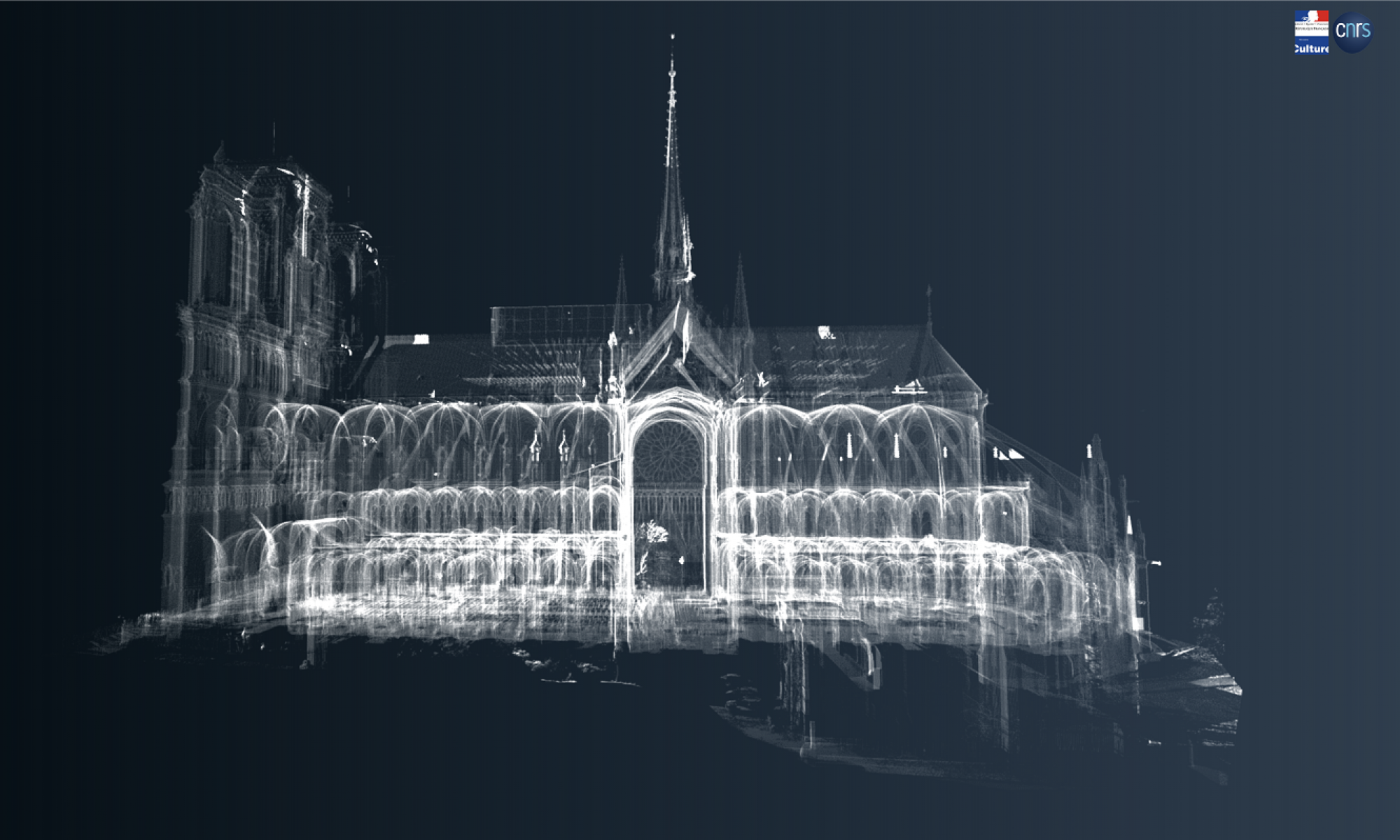Project Background and Ambition
The research on cultural heritage makes the confrontation between material objects and multidisciplinary studies the arena for the production of collective knowledge. In the digital age, this is then a privileged framework for studying the collective analysis and interpretation of facts, objects and phenomena that bring together a new generation of data towards the construction of new scientific and cultural resources – our tomorrow’s heritage. How can one memorise these bundles of individual gazes converging on the same object of study? How can one analyse their dynamics of construction, of overlap and of fusion leading to new knowledge?
The ERC project n-Dame_Heritage introduces a new field – a territory of multidisciplinary and multidimensional digitally born data – as raw material for studying the mechanisms of knowledge production in cultural heritage. Introducing a pioneering approach in computational modelling and digitisation, this project benefits from the exceptional experimental framework of the scientific worksite on Notre-Dame de Paris (involving today 175 researchers coming from disciplines like archaeology, anthropology, architecture, history, chemistry, physics and computer science) to build an emblematic corpus of data on scientific practices in heritage science in the digital age.
Within this unique opportunity to produce and analyse masses of digitally born scientific data, n-Dame_Heritage will deliver a generalisable approach, a replicable methodology and an open and reusable digital ecosystem to build cathedrals of knowledge by the collaborative research on material objects. By introducing and experimenting next generation methods and tools for the semantic-driven data production and analysis, this project shifts the cursor of digitisation, from the physical object to the knowledge for understanding it, in order to analyse the interdependence between its complex features and the related knowledge objects built by scholars through their research practices.
Call for participation – job offers
The hosting institution and Time Machine member CNRS (Centre Nationale de la Recherche Scientifique, lead: Livio de Luca) is currently offering seven open job positions within the frame of the project:
- Two years (renewable up to four years) researcher position in Digital Humanities: Knowledge formalisation, data curation and analysis in cultural heritage
- Two-years (renewable up to four years) researcher position in Computer Science: Knowledge engineering, machine learning, multimedia content classification and retrieval
- Two-years (renewable up to four years) research engineer position in Computer Science: Full stack development, Cloud computing, Web services
- Three-Years PhD student position in Data Science for Cultural Heritage: n-Dimensional analysis and exploration of heritage science data in mixed reality
- Two-years (renewable up to four years) study engineer position on multimodal 3D digitisation: Laser scanning, photogrammetry, RTI, geometric and visual processing applied to architecture and remains
- Two-years (renewable up to 4 years) study engineer position on digital curation of heritage science data: Data collection, Data curation, FAIR principles, heritage science.
- Two-years (renewable up to 4 years) study engineer position on semantic annotation of heritage data: Semantic annotation of heterogeneous data (text, images, videos, 3D models, …)
Application deadline: 30 June 2022
Interviews (only for selected candidates): July 2022
Contracts are expected to start between October and December 2022.
Candidates can apply for several positions, depending on their education and skills. Nevertheless, each application should be considered as a unique context and the cover letter should be targeted according to the specific activities of each job offer.
